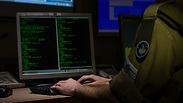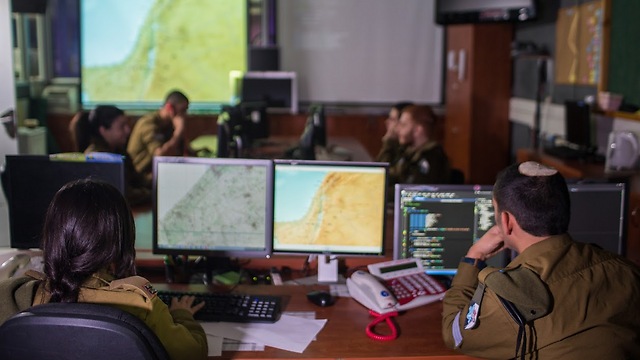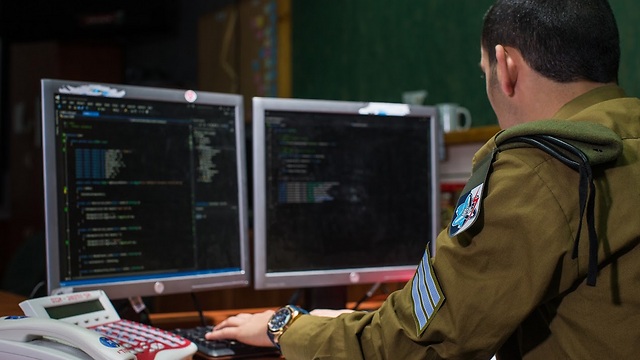
The subterranean facility that was established in the center of the country and spreads several stories underground will be staffed 24 hours a day, 7 days a week with "cyber defense" soldiers, relevant intelligence personnel, and others, as the situation warrants. Col. H. from the C4I (Computer Service) Directorate will command the unit with the title "head of defense operations department."
Last week, Brig. Gen. Danny Bren, the founder of the first cyber defense unit, retired from the IDF. Bren also served as the commander of Lotem, the IDF's technological brigade that includes the army's largest software houses. With his resignation, his role has been split into two: the new commander of the defense brigade, called Brig. Gen. N., and the Lotem commander, Brig. Gen. Rami Malachi.
The opening of the headquarters begins a new phase for the IDF in dealing with the changing technological realties, leading to the construction of a full-fledged cyber branch of the IDF headed by a major general, to which Chief of Staff Gadi Eisenkot has agreed in principle. Leading the process, including allocating resources and personnel, is Brig. Gen. Y., who bears the title "head of cyber staff."
Today, the IDF's cyber activities are concentrated in two different entities: the C4I Directorate, which is more focused on defense matters, and the Military Intelligence Directorate (MID, also known as Aman), where offensive capabilities are also developed. As part of the framework of the Defense Brigade, an intelligence unit was recently established, aimed at providing cyber defense solutions.
With the headquarters now complete, Eisenkot has before him the decision of what the exact structure of the new cyber branch will be. Several options are on the table for the new branch, which is expected to begin operating in 2017, among them consolidating all related activities under a single roof.
Even though its direct responsibilities over cyber warfare are limited to military networks, the IDF is in close cooperation with civilian cyber bodies – the national cyber warfare HQ in the Prime Minister’s Office, the Defense Ministry’s cyber HQ (responsible for protecting the ministry’s networks, as well as those of military industry companies), and the Shin Bet’s cyber HQ (which protects the country’s critical infrastructure).
According to Brig. Gen. Bren, who is retiring after 30 years of service, the quick pace of technological change, as well as its availability, is eroding Israel’s technological advantage over its enemies. “Everyone (took) a significant leap on cyber (warfare) matters. The speed of change is so high, that the IDF needs to ask itself whether it can change in a pace that suits the times.”
According to Bren, “Israel is the only democratic nation in the world that has enemies who desire its kinetic destruction, who have cybernetic abilities, and who combine these two together into a single operational idea. These enemies are called Iran and Hezbollah.”
When asked about the question of human capital, and of the salary gaps between IDF commissioned and non-commissioned cyber defense officers, Bren says, “People don’t leave because of money. If it’s a reasonable pay gap, they stay because of the challenge. They leave only when they feel that their time is being wasted. We encourage initiative and innovation. What is a successful start-up, after all? ‘Crazy’ developers, an idea, and an investor. We have an investor, since the IDF pays the salaries, ‘crazies’ are in abundant supply, and operational ideas? (Let’s just say) I wish reality were more dull.”


















